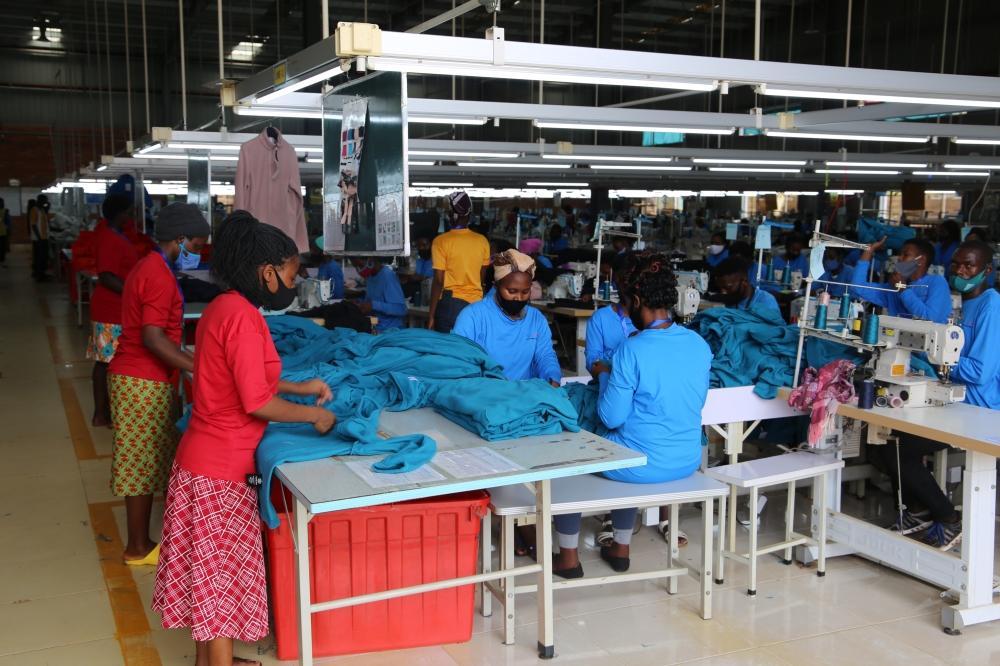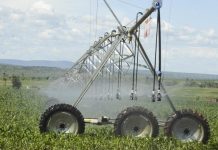Africa-Press – Rwanda. Rwanda’s labour inspection system has improved workplace safety and compliance, but major gaps remain that continue to put workers’ lives at risk, especially in the mining and construction sectors, according to a new study by the Institute of Policy Analysis and Research (IPAR–Rwanda).
The report, titled “Strengthening Labour Inspections for Decent Work and Enterprise Compliance in Rwanda,” conducted by IPAR–Rwanda was launched on November 4 in Kigali.
Eugenie Kayitesi, Executive Director of IPAR–Rwanda, said the research acknowledged the government’s progress but noted gaps that persist, especially in high-risk industries.
“The government has really done a good job,” she said. “But respondents noted that in some risk areas, like safety gear, helmets and clothing, requirements are often ignored, especially by illegal miners. We recommend that illegal miners should not be tolerated where they exist.”
Kayitesi added that while the Ministry of Public Service and Labour (MIFOTRA) has established strong frameworks and policies, “there is still room for improvement, particularly in ensuring that workers in high-risk areas have full protective coverage and security.”
The IPAR report identifies a critical misalignment in Rwanda’s labour inspections, which prioritise administrative checks over vital safety concerns.
While 58 per cent of visits focus on wages and pensions, life-threatening hazards are neglected; chemical safety is a primary focus in only 7 per cent of visits, and specialised safety officers participate in just 4 per cent.
Compounding this, a lack of resources means 90 per cent of inspectors lack the necessary tools and transport, limiting their reach to only about 60 per cent of worksites.
The failure to address physical risks is exacerbated by a vulnerable workforce.
The study found that over 90 per cent of workers are unaware of their legal rights, which allows practices like unpaid overtime and unsafe working conditions to persist unchallenged, leaving workers in high-risk sectors exposed to significant danger.
Andre Mutsindashyaka, Secretary-General of the Rwanda Extractive Industry Workers Union (REWU), welcomed the findings and linked them to ongoing reforms in the mining sector.
“It (the study) reflects the realities on the ground, especially regarding inclusion and working conditions,” he said, citing improvements at mining sites following the establishment of community centres that have helped promote inclusion, particularly for women.
“For instance, the creation of Early Childhood Development (ECD) centres near mining sites has increased women’s participation from 11 to 24 per cent. These centres also allow mothers to bring their children, which has brought significant social benefits,” he added.
Mutsindashyaka, however, noted the absence of a national minimum wage but said trade unions and employers are addressing the issue through collective bargaining agreements (CBAs).
“According to the labour law, we can negotiate agreements between companies and trade unions,” he explained. “So far, we have sent eight CBAs in the mining industry with various companies.”
He also highlighted a recent agreement ensuring that miners are paid a daily incentive even when they fail to find minerals.
“Previously, workers who didn’t find minerals were not paid, it was a form of human exploitation,” he said.
“Now, with support from MIFOTRA and employers’ associations, we agreed on an incentive of Rwf1,500 per day for such workers. This will help reduce poverty in the sector.”
On skills development, he pointed to the Work Plus Learning programme, a collaboration between trade unions, Rwanda TVET Board and Rwanda Polytechnic, designed to close the industry’s skills gap.
“The mining sector employs about 92,000 workers, but fewer than 1,000 have higher education qualifications,” he said. “Through Work Plus Learning, workers can now gain certificates recognising their skills acquired on the job,” he noted.
Alexis Kabayiza, Chief Technical Advisor at the Ministry of Trade and Industry, called for better mechanisms to record informal job creation.
“It was interesting to see details on enterprise ownership,” he said. “But we also need to capture informal employment, people running bakeries, making soap, or employing others in small family businesses. These jobs often go unrecorded because of tax reporting requirements.”
He added that recognising such employment would help improve national labour data and strengthen policy design.
Bernard Nsanzimana, a consultant at GEMICO Mining Company and university lecturer, noted that the sectors including tourism and construction lead in creating new jobs but also experience high turnover due to their seasonal nature.
“These sectors should be formalised,” he said. “Many construction workers lack contracts and therefore miss out on social security contributions. When they retire, they have no pensions. Formalisation is key.”
Nsanzimana added that while inspections have improved, they remain fragmented.
“Instead of inspectors working separately, from the Labour Inspectorate, Rwanda Mines Petroleum and Gas Board or other agencies, they should coordinate to avoid duplication and conflicting decisions.”
Source: The New Times
For More News And Analysis About Rwanda Follow Africa-Press






